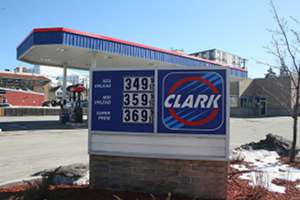The Federal Gas Tax: 98% versus the 2%
Recently, multiple attempts to cut or eliminate bicycle and pedestrian funding from the federal transportation budget have been proposed under the premise that these funds are needed to rebuild America’s infrastructure. Senator Tom Coburn of Oklahoma attempted to “hold” the transportation extension to pass an amendment, which would have eliminated the funding for Transportation Enhancements program, Congressman John Mica of Florida proposed eliminating the Transportation Enhancements and Recreational Trails program, and on this past Tuesday Senator Rand Paul of Kentucky attempted to divert these same funds to bridge repair. So far all of these measures have failed. The program in questions takes a small portion of the Highway Trust Fund to pay for bicycle and pedestrian facilities to improve accessibility, mobility, and develop multi-modal transportation systems in communities across the US.
Despite the stated reasons for these attempts at cutting bicycle and pedestrian infrastructure funding, these measures have simply been a distraction from the truth and fail to address the real issues. To be perfectly clear, completely cutting the Transportation Enhancements program, about 2% of the transportation budget, will not make a dent in the massive shortfall needed to fund our bloated highway system, but it will reduce our quality of life.
The federal gas tax has been set at 18.4 cents per gallon since 1993. Robin Williams was staring in Mrs. Doubtfire, and the Chicago Bulls were just wrapping up their first three-peat. It’s been awhile. Having not been raised in years, the gas tax has not kept up with the rate of inflation, let alone the cost of new highway spending. The problem isn’t the pennies spent on biking, and pedestrian improvements. The problem is the fact that no one wants to pay for that newer, bigger, better interchange, that extra lane to ‘reduce’ congestion, and that new off-ramp to Nowhere, USA.
Redirecting 2% of federal transportation funding isn’t how America will rebuild its infrastructure. If America wants to rebuild its infrastructure it is time to raise the gas tax and index it to inflation.
Car Culture
-
It’s PARK(ing) Day, Let the Celebration Begin
 Sep 20th, 2013 by Jeramey Jannene
Sep 20th, 2013 by Jeramey Jannene
-
Why WisDOT Is Behind the Times
 Jun 12th, 2013 by Dave Reid
Jun 12th, 2013 by Dave Reid
-
Walker’s Massive Borrowing Scheme
Feb 19th, 2013 by Dave Reid






















“Having not been raised in years, the gas tax has not kept up with the rate of inflation, let alone the cost of new highway spending.”…..
The tax is a percent, not a fixed amount. It follows inflation automatically. 18% of 4 dollar gas is four times more than 18% of 1 dollar gas.
Would you raise the percent each year? When would it stop, at 100%?
You need to go back to grade school and learn about percents.
@What??? Ummmmm yeah the Federal Gas Tax is 18.4 cents per gallon.
Cutting the 2% of funds dedicated to these tries to solve an overspending problem in transportation infrastructure when we really have a revenue and underspending problem. Yes, I typically agree with Republicans on economic issues, but I just said it. When you cap revenue for nearly 20 years while costs continue to go up as expected, this is what you should… well, expect.
Now, gasoline tax isn’t necessarily the best way to gauge usage of roads (For example, a BMW M3 averages 16mpg while a Prius averages 50, so the M3 driver would pay over 3X the usage cost of a Prius driver despite not really using more. You could always make the environmental argument though.) but it is our main collection method. Tolls can help even out the usage costs and collect more revenue. With that said, it’d be difficult to increase gas taxes given the political hostility towards such increases. That exists on both sides of the political spectrum.
If the gas tax was inflation-adjusted way back in ’93 like it should’ve been, it’d be roughly 27.4 cents/gal vs. the 18.4 it still is. What should happen is for us to apply that inflation adjustment to our current tax and recalculate it with inflation on a continual basis. (even every 5 years, to reduce complexity, would certainly be better than nearly 20yrs) Will that ever happen? Probably not. You know every news media outlet in the country would have a headline reporting: “Government to Raise Gas Tax by 50%” followed by the millions of people outraged over…. 9 cents.
In the end though, our system may eventually HAVE to adjust to a toll or other based revenue system. As cars become increasingly more efficient and move to electric propulsion, the gas tax may no longer work after 30-40 years regardless of what it is set at.
(That was far longer than intended, btw. haha)
@what??? Just to reiterate for redundancy’s sake, the gas tax is indeed 18.4 CENTS PER gallon, not PERCENT. Eat your words. Dave’s not the one that needs to go back to grade school.
@ktkof09 I think you’re right that the gas tax doesn’t accurately reflect usage, which is why to me a vehicle miles traveled tax would in the long run make more sense.
So my questions are…. If the national tax per gallon is 18.4 and WI is 32.1, what is the net after all of the incentives given to the oil producers and distributers? Are we just playing a tax shell game? Taxing the end user to support oil companies in the end? Don’t they make enough money? Do we really need to subsidize them?